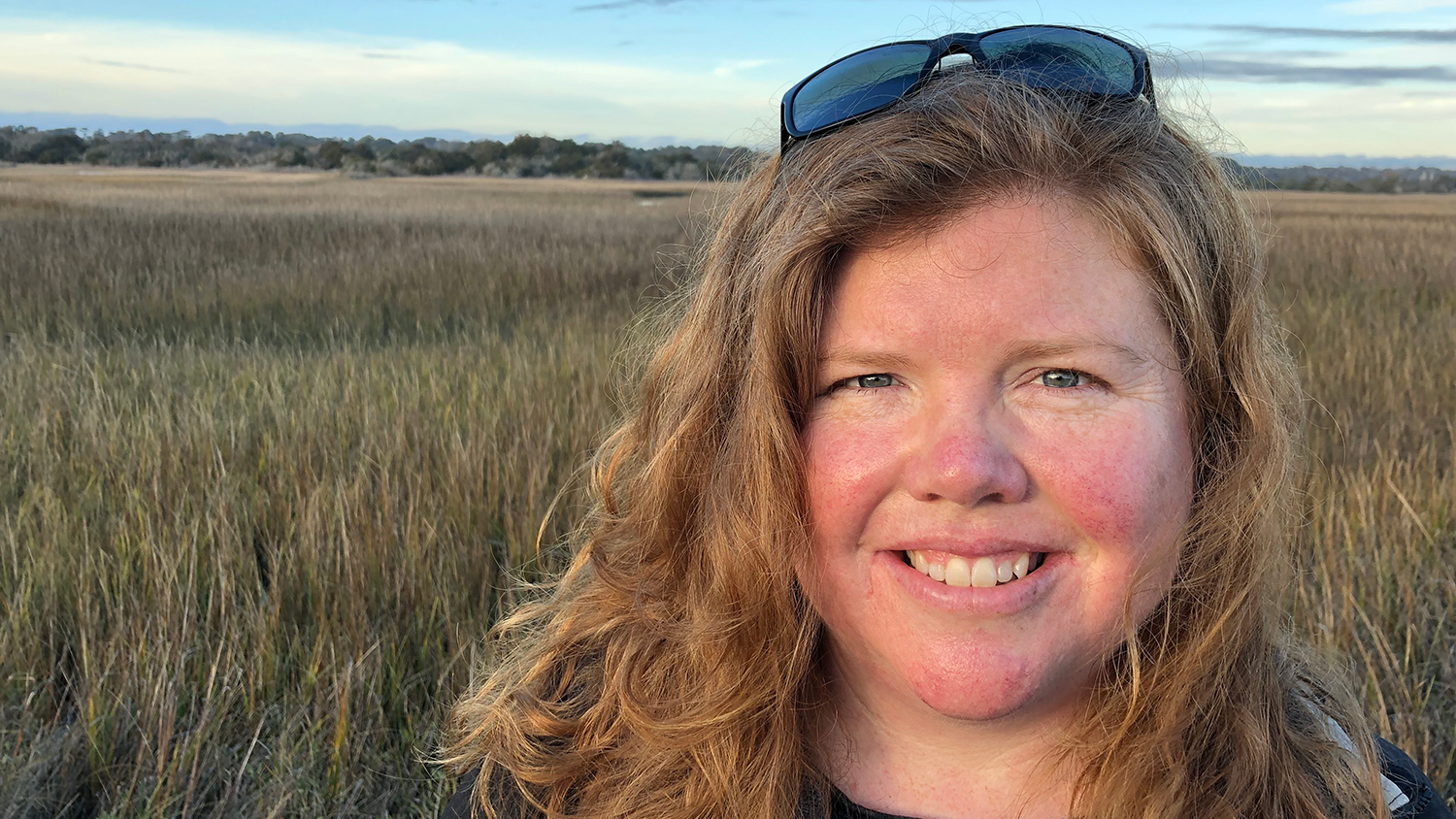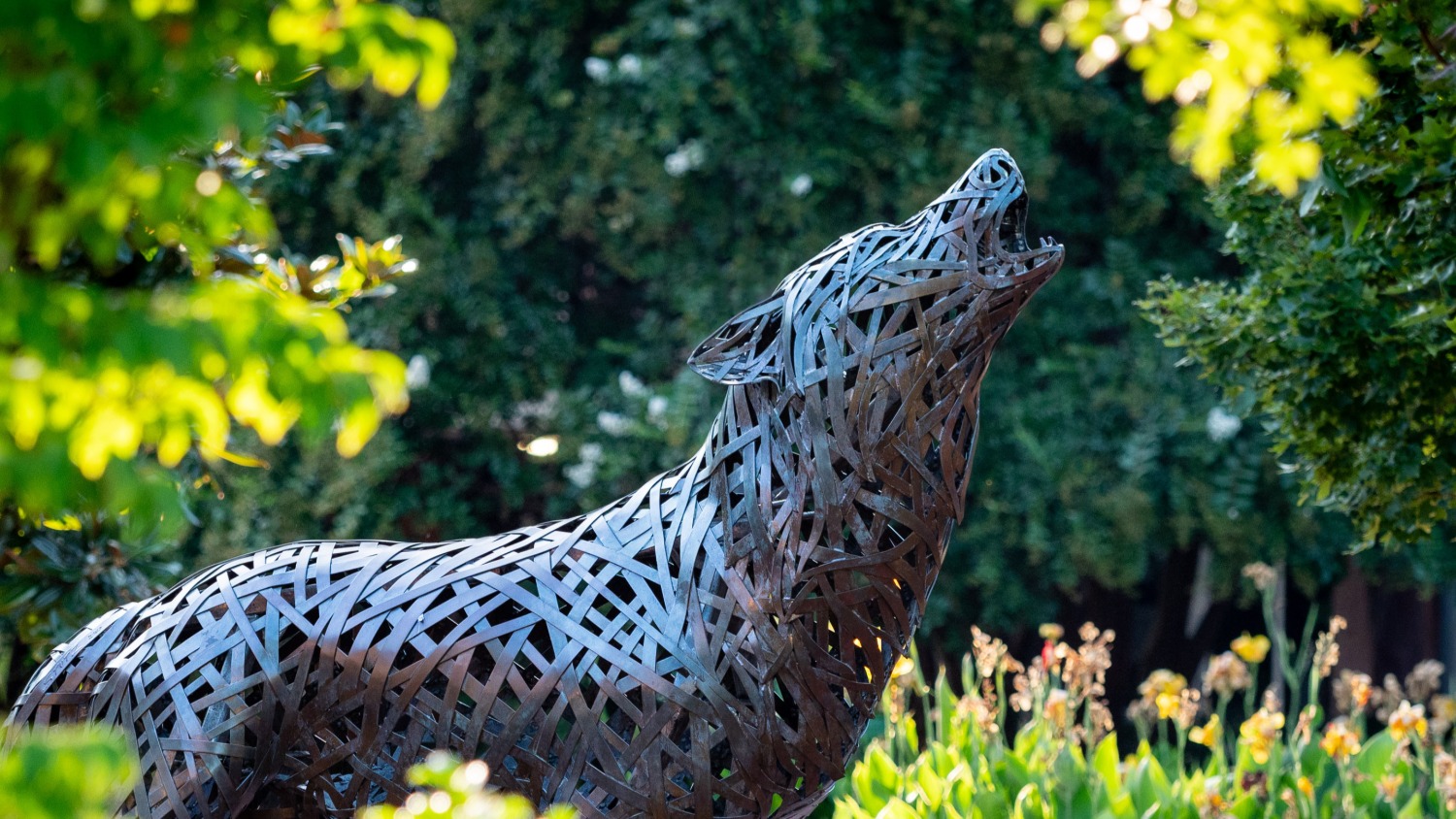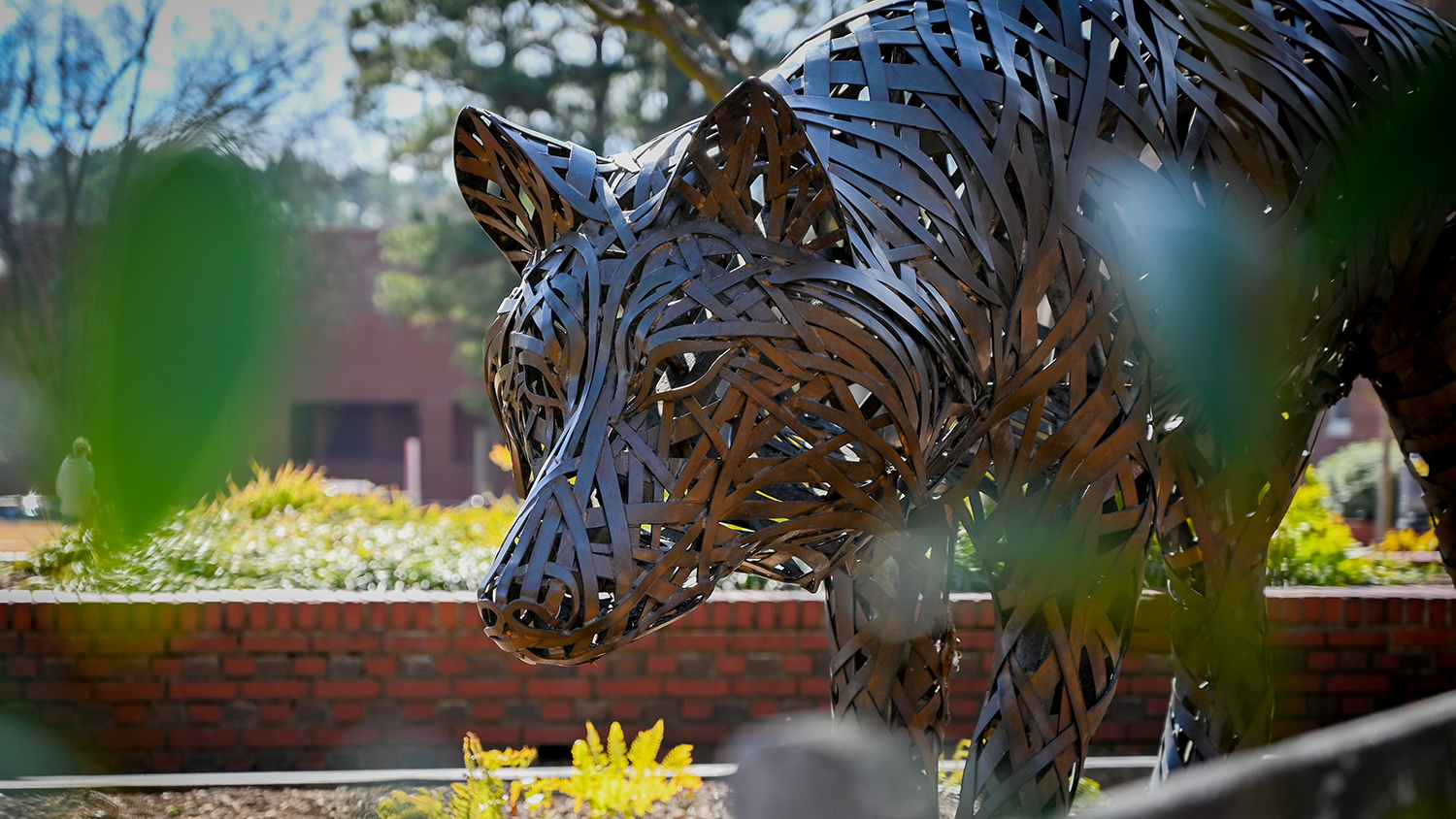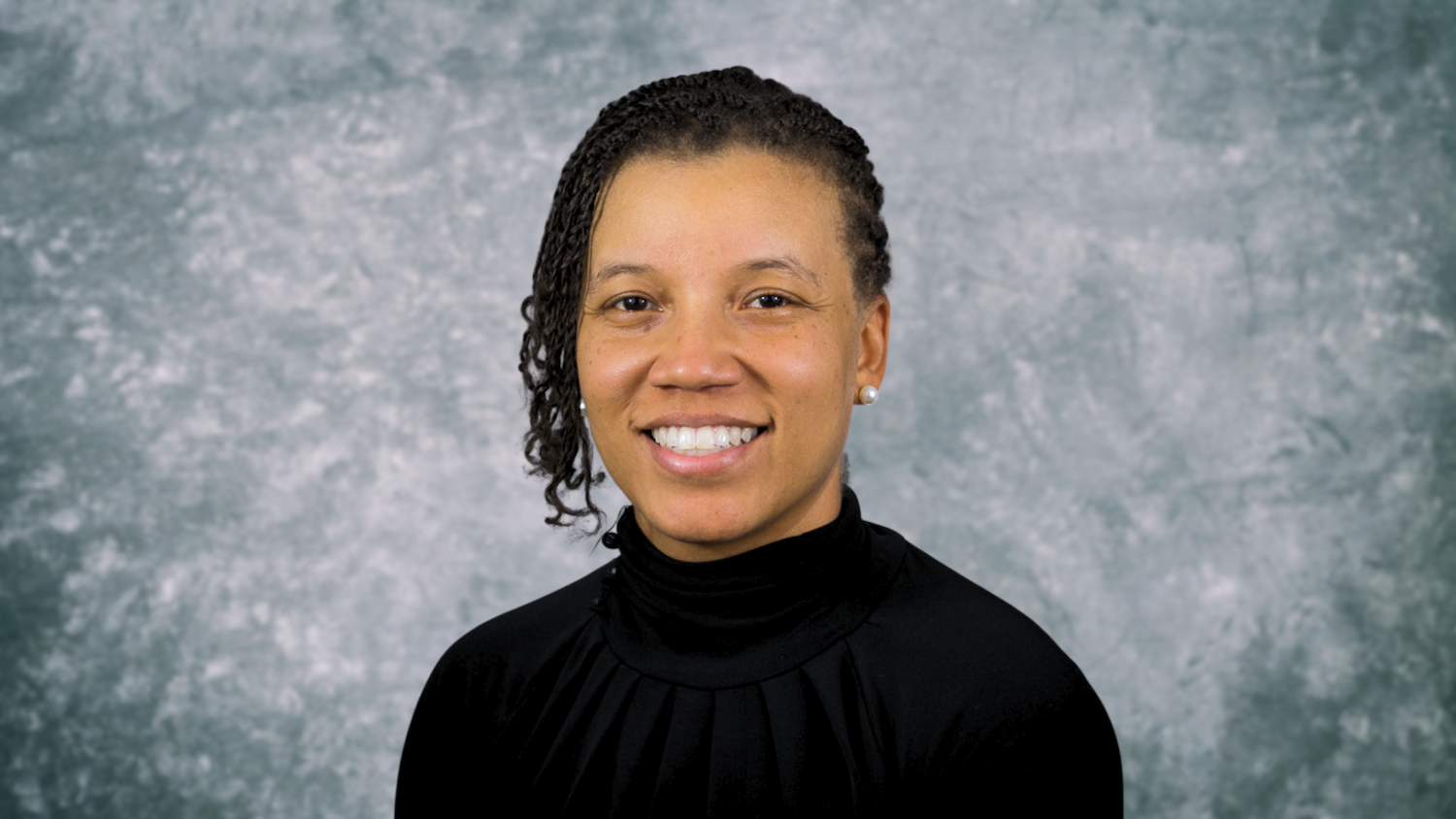Erin Seekamp, a professor of parks, recreation and tourism management and an extension tourism specialist at the NC State College of Natural Resources, is the first woman in the college to receive the Alumni Association Distinguished Graduate Professorship Award.
“It’s a great recognition to demonstrate how much of my time and energy I spend mentoring graduate students,” Seekamp said. “Being able to see the successes of all the students who I’ve mentored and watched their growth and development after they leave NC State and become their own catalysts for change is just tremendous for me.”
Seekamp teaches courses that attract students from across the university. One such course is PRT 560: Theory and Practice of Partnerships for Conservation and Community Sustainability. This course focuses on providing students with the relevant knowledge and skills to effectively collaborate and leverage resources to address conservation issues and community development.
“The course provides students with an opportunity to not only learn about partnership theory but to gain skills by collaborating and evaluating a current partnership of their choosing,” Seekamp said. “They spend time interacting with members of a partnership, conducting case study research, and writing a term paper that results in a conference presentation, an Extension publication, or refereed journal article.”
Students in the course often provide suggestions for improving the partnership they evaluated in either a report or presentation to the partnership’s leadership, according to Seekamp. These proposed solutions may even be considered and implemented in the future.
Recently, for example, students from the course created a report — “Working Together: A Guide to Collaboration in Rural Revitalization” — to support the Downtown Kinston Revitalization project in North Carolina, as well as other rural communities seeking to revitalize their communities through partnerships.
Advancing Women in Parks and Recreation
The journey to parks, recreation and tourism management wasn’t a straight path for Seekamp, who discovered her passion while majoring in an unrelated field and has had to experience the challenges of being a female in academia.
In the mid-1990s, as she was studying at James Madison University in Virginia, Seekamp spent a summer working for concession services at Yosemite National Park. When she started her internship, she was unaware that a field such as parks, recreation and tourism management even existed and that she could get an internship actually working for the park and not just cleaning hotel rooms.
That summer, a flood hit Yosemite Valley, which closed the park to all tourists. “It was an opportunity for the park service to think differently about how they managed tourists in such a premier destination of natural beauty with tremendous indigenous cultural heritage,” Seekamp said. “So, I went back to school and changed my major to anthropology and environmental studies so that I could look at that human-nature connection.”
Many years later, after earning her master’s and Ph.D. degrees in forestry and natural resources, respectively, Seekamp began teaching at Southern Illinois University in Carbondale in the Department of Forestry. While in Illinois, Seekamp worked on a multi-state project from the National Institute for Food and Agriculture, a project which focused on enhancing outdoor recreation.
Soon after, Seekamp found her new calling when she was recruited to NC State’s Department of Parks, Recreation and Tourism Management as a faculty member and the department’s extension leader, a position she has held for the past ten years. Since starting in the department, Seekamp has worked her way up from assistant professor to professor.
Seekamp reflects on her own challenges when she helps mentor students, especially females. “Women are subject to bullying very frequently by those who are above us in rank and I think that is also pervasive for graduate students, too. I faced it throughout my education and my career, and it’s something you have to learn how to confront and how to manage your own ability to deal with it as well as committing to creating structural change within academia that tries to remove those types of microaggressions or aggressive behaviors by those who diminish the value women bring to a university.”
Building Climate-Ready Communities
During her time at NC State, Seekamp has been awarded more than $11 million in funds to support many research projects focused on building climate readiness within coastal communities that are natural resource- or tourism-dependent, including the Great Lakes, and within organizations that manage park and recreation resources in coastal zones.
Seekamp, for example, has conducted a lot of work with the U.S. National Park Service at Cape Lookout National Seashore over the years. In fact, she recently received funding to return to the site to evaluate climate adaptation planning for its two historical districts: Portsmouth Village and Cape Lookout Village.
Communities and resource management agencies, such as the National Park Service, suffer from insufficient funding to adapt all of their buildings to threats imposed by climate change. Through her work, Seekamp has discovered that people who are most closely attached to those buildings, former residents and descendants of former residents, really don’t want to see the buildings moved to higher ground or off the islands.
“They recognize that climate change is a real threat but their greatest concern is that the loss of the buildings from the landscape will affect the way in which future generations can build that connection to a place that they have held for so long,” Seekamp said. “When we go back with this new funding, we’re going to be able to more directly integrate community values into our modeling efforts out there.”
If you would like to learn more about NC State Tourism Extension and its efforts to help individuals and communities develop long-lasting tourism endeavors and destinations, please click here.
- Categories:



